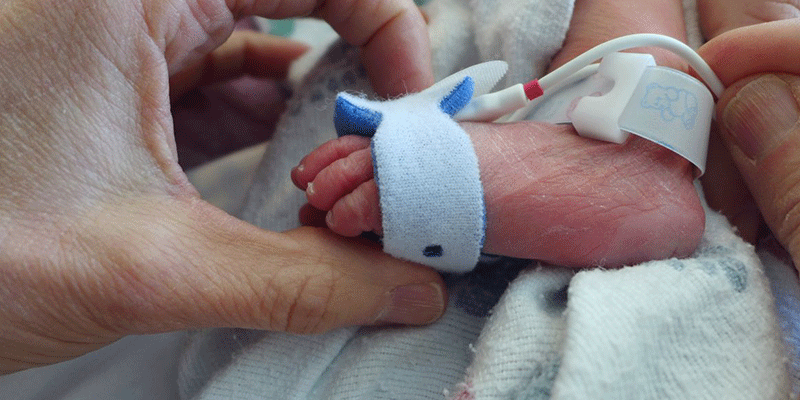
What happens a baby fails the pulse oximetry screening?
If the screening test suggests a problem, additional testing to evaluate for CHD or for other potential causes of low oxygen will be necessary before the baby will be discharged from the hospital.
Testing may include a chest radiography and bloodwork. A thorough ultrasound of the baby’s heart called an echocardiogram will be performed and read by a pediatric cardiologist. The echo will evaluate all the structures and function of the baby’s heart in detail. If the baby’s echo shows any problems, the baby’s medical team will discuss next steps with the parents in detail. See Common Types of Cardiac Testing for more information.
Note: As with any screening test, sometimes there can be times when the pulse oximetry screening test is not correct. Sometimes there can be false positives, meaning that while the pulse ox screen suggests a problem, the echo will be reassuring that the heart is normal. Just because a baby fails the pulse oximetry screening test does not mean that the baby has a heart defect. There are other reasons that a baby may have lower oxygen levels, such as infection or lung problems. These are also very helpful to be picked up early. As well, some healthy babies can have a low pulse oximetry reading while their heart and lungs are adjusting after birth.
If a baby passes the pulse oximetry screening, does it mean he or she has no heart defects?
Unfortunately, no. Pulse oximetry testing picks up only some types of CHD. Heart defects which are not causing a low blood oxygen level at the time of the screen are not picked up by the test.
Even if a baby passes the pulse oximetry screening, parents should watch:
- How well their baby is feeding
- Any difficulty in breathing
- Increased irritability
- Excessive sleepiness
- Bluish color to the lips or skin
- Grunting
- Fast breathing
- Poor weight gain
Parents are advised to contact their baby’s doctor right away if they notice any of these signs.
Last Updated 2/11/2019
Source AAP Section on Cardiology & Cardiac Surgery (Copyright @ 2019 American Academy of Pediatrics)
The information contained on this Web site should not be used as a substitute for the medical care and advice of your pediatrician. There may be variations in treatment that your pediatrician may recommend based on individual facts and circumstances.






